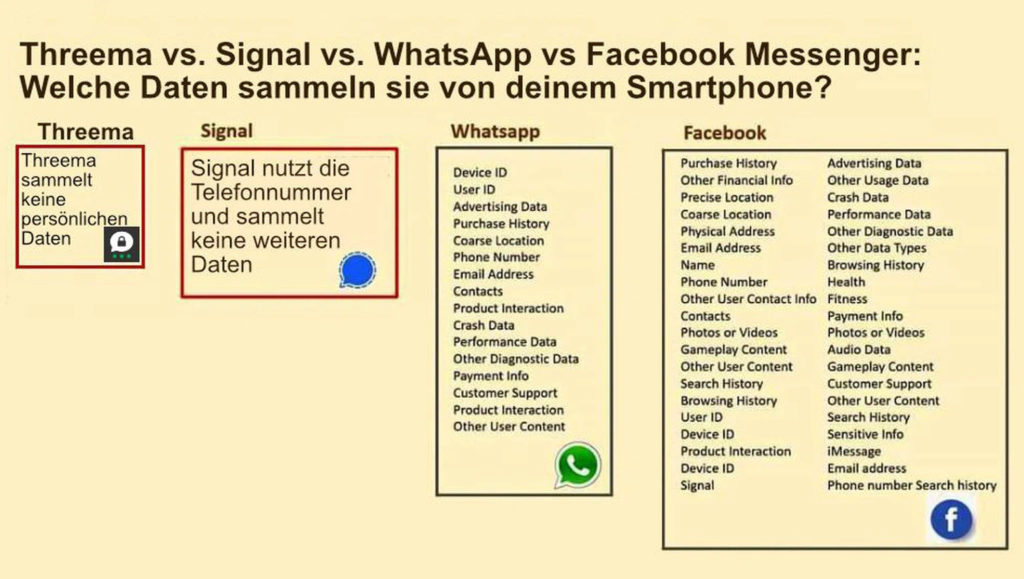It’s time to walk away from WhatsApp and Facebook
Digital privacy is a public issue
In much the same way that vaccination against COVID-19 is not only a private measure, but also a public health one, ensuring your digital privacy affects the community at large.
The Cambridge Analyitica scandal in 2016 showed that your personal data is used by political parties to target political advertisements chillingly accurately. By participating in the Facebook ecosystem, you actively enable third parties to effectively manipulate elections.
Another good example of what happens when accurate data about political persuasion is available to political parties is the abuse of gerrymandering in US politics.
Informed decision making is completely destroyed by ‘information bubbles’
One of the basic tenets of our democratic systems is that people have access to unbiased information with which they can make an informed decision about which way to vote.
As the film The social dilemma aptly demonstrates, through the use of very clever machine learning algorithms, almost every social media app tries to continuously improve its attractiveness, tries to make you stay longer on the screen – for instance, the ellipsis displayed when someone is typing an answer to a message from you makes you stay longer on the phone and wait for the answer.
These algorithms are not per se bent on misinforming you, but the sad truth is that we humans are more fascinated by scandal and outrage, rather than plain old boring truth.
So, if you follow a feed of information that has been devised by a KI trying to increase your time spent on screen (such as the next recommended film in YouTube, or your Twitter feed, or your Facebook feed), this feed will much more likely include outrageous lies, rather than plain old boring truths.
This is a new phenomenon, and we haven’t yet worked out how to minimize the polarizing effects it has on political opinion.
Thankfully in Europe we have public information networks, paid by taxpayer money, who have the mandate to tell the truth, but in countries where all media is private, you can see this effect too, as sensationalist outrage is actually the main product, and where some networks actually argue in court that their programmes are for entertainment, not for information.
The US has effectively polarized itself into a split society, where both halves sincerely believe the other half is an existential threat, and the two halves cannot even agree on what is a fact. This is a recipe for disaster.
So, if we want to maintain our democratic system, we have to wean ourselves off social media feeds that are optimized for attention.
By using WhatsApp you give Facebook your friend’s personal information, not only yours
While it is true that the actual content of your conversations is encrypted, the metadata is available to Facebook. By using WhatsApp, you essentially agree to transfer your personal address book to Facebook. So you transfer personal information about your friends to Facebook, not only information about yourself. This clearly breaches data protection laws, theoretically you should have asked every single person in your address book if they agree to have their personal data sent to Facebook.
Admittedly, it is possible to use WhatsApp without giving the app access to your contacts, but that means all you see is phone numbers.
Have a look at the data that is collected by the WhatsApp and Facebook Messenger application when installed on your phone. Does that really look like a legitimate use?

What steps can you do to improve your digital privacy?
The main offenders in my eyes are Facebook and Google:
- Delete your WhatsApp account, and your Facebook account
- Use DuckDuckGo as a search engine instead of Google
- Use Here instead of Google Maps
What steps can you do to reduce phone addiction?
- Turn on the program that logs your actual time spent on the phone every day.
- Turn off all notifications
- If you use YouTube, don’t follow any of the recommendations but only watch videos that you have searched yourself
- don’t bring the phone into your bedroom
- Instigate some screen-free days (for instance, on weekends or on holidays)